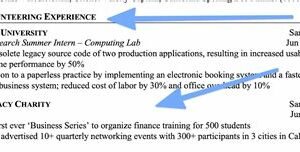Table of Contents
Forced volunteer work refers to the practice of compelling individuals to participate in community service against their will. This controversial form of mandatory service raises ethical concerns and questions about personal freedom and autonomy. Explore the implications and debates surrounding forced volunteer work in society.
Forced volunteer work, a practice that compels individuals to engage in community service against their will, raises ethical concerns and challenges the very notion of volunteering. Although volunteerism is generally regarded as a noble and selfless act, the imposition of such work undermines the core principles of altruism and personal choice. Moreover, the idea of mandating individuals to contribute their time and effort for the betterment of society without their consent poses serious questions about freedom and autonomy. As we delve deeper into the complexities surrounding forced volunteer work, it becomes evident that this controversial practice not only blurs the lines between genuine volunteerism and compulsory labor but also highlights the need for a critical examination of its implications on individual rights and societal values.
The Issue of Forced Volunteer Work
Volunteer work is often seen as a noble and selfless act, with people willingly giving their time and skills to help others in need. However, there is an ethical dilemma surrounding the practice of forced volunteer work, where individuals are required to engage in unpaid labor against their will. This article explores the implications of forced volunteer work and its potential consequences on both individuals and society as a whole.
Defining Forced Volunteer Work
Forced volunteer work, also known as compulsory volunteering or involuntary servitude, refers to situations where individuals are coerced into participating in unpaid activities without their consent. This can occur in various settings, such as schools, workplaces, or even within community organizations. While the intention may be to promote community engagement or fulfill certain requirements, the lack of choice and freedom makes it fundamentally different from genuine volunteerism.
The Ethical Dilemma
At the core of forced volunteer work lies an ethical dilemma. On one hand, it can be argued that mandatory community service helps instill a sense of civic responsibility and encourages individuals to contribute to the greater good. On the other hand, it raises questions about personal autonomy and the value of voluntary actions. By coercing individuals into unpaid labor, the true spirit of volunteerism is compromised, potentially leading to resentment and a lack of genuine engagement in the long run.
Impact on Individuals
Forced volunteer work can have detrimental effects on individuals. It erodes the sense of personal agency and autonomy, as individuals are forced to engage in activities they may have no interest in or see no value in. This can lead to feelings of resentment, demotivation, and a lack of personal growth. Instead of fostering a passion for service and community engagement, these individuals may develop a negative perception of volunteer work, which hinders their future willingness to engage in genuine voluntary efforts.
Negative Impacts on Society
Forced volunteer work not only affects individuals but also has broader implications for society. When people are coerced into volunteering, the quality and effectiveness of their contributions may be compromised. Genuine volunteerism involves a willingness to give one’s time and skills, which often leads to more meaningful and impactful outcomes. By forcing individuals to volunteer, society risks losing the true potential of their talents and passion, ultimately hindering the development of communities and social progress.
Alternatives to Forced Volunteer Work
Instead of resorting to forced volunteer work, there are alternative approaches that can promote genuine community engagement. One such approach is raising awareness and educating individuals about the importance and benefits of volunteerism. By inspiring people and creating a culture of giving, individuals are more likely to willingly dedicate their time and skills to support causes they genuinely care about. Moreover, organizations can provide incentives and rewards for voluntary efforts, recognizing and appreciating the contributions of those who choose to engage in community service.
The Importance of Choice
Preserving the freedom of choice is crucial when it comes to volunteer work. People should have the right to select causes or activities that align with their values and interests. This not only ensures a more meaningful and fulfilling experience for volunteers but also leads to greater impact within communities. By empowering individuals to make their own choices, volunteerism becomes a personal commitment rather than an obligation, resulting in more dedicated and passionate contributors.
Addressing Mandatory Requirements
Schools, workplaces, and organizations that require volunteer work as part of their programs or policies should reconsider their approach. Instead of mandating participation, they can focus on providing opportunities for individuals to explore different areas of interest and find causes they genuinely connect with. Additionally, flexibility should be offered to accommodate diverse schedules and personal circumstances, ensuring that volunteer opportunities are accessible to all without creating undue burden or stress.
Reevaluating the Value of Work
Forced volunteer work highlights the need for society to reassess the value placed on unpaid labor. By recognizing and valuing volunteer work as an essential contribution to the betterment of communities, individuals will be more willing to engage in it voluntarily. This shift in perspective can help foster a culture of volunteerism rooted in genuine passion and dedication, rather than obligation or coercion.
Fostering Genuine Volunteerism
Ultimately, fostering genuine volunteerism requires a collective effort from individuals, organizations, and society as a whole. By promoting the intrinsic value of volunteer work, respecting personal autonomy, and providing meaningful opportunities, we can create a culture where people willingly dedicate their time and skills to make positive changes in their communities. In doing so, we can ensure the spirit of volunteerism thrives, benefiting both individuals and society in immeasurable ways.
Forced volunteer work is a complex issue that challenges our understanding of voluntary actions and personal autonomy. By acknowledging the ethical concerns, exploring alternatives, and fostering a culture of genuine volunteerism, we can navigate this dilemma and create a society where volunteer work is truly driven by compassion and goodwill.
I. Introduction:
Forced volunteer work is a controversial practice that involves individuals being compelled to engage in voluntary activities against their will. This assignment aims to shed light on the various aspects of forced volunteer work, examining its ethical implications, potential benefits, and potential drawbacks. Through this discussion, we will examine why this practice is considered questionable and discuss potential alternatives for promoting genuine voluntary engagement.
II. Definition and Explanation:
Forced volunteer work refers to situations where individuals are coerced or compelled to perform voluntary activities without having the freedom to choose whether or not to participate. This entails pressuring individuals through threats, sanctions, or other means to engage in volunteer work against their will. This practice often raises concerns regarding notions of freedom, autonomy, and the potential exploitation of labor.
III. Ethical Implications:
The practice of forced volunteer work raises significant ethical concerns, as it infringes upon individual freedom and autonomy. By compelling individuals to participate in volunteer activities, their genuine desire to contribute and make a positive difference is replaced by feelings of coercion and resentment, ultimately undermining the original spirit behind volunteering.
IV. Lack of Intrinsic Motivation:
One of the main drawbacks of forced volunteer work is the absence of intrinsic motivation. Genuine volunteer work is built upon individuals willingly dedicating their time and efforts, driven by their own commitment and passion for a cause. When individuals are forced into volunteering, they may not possess the same level of enthusiasm or commitment, potentially resulting in subpar performance and diminished impact on the cause they’re serving.
V. Exploitation of Labor:
Forcing individuals to engage in volunteer work also raises concerns about the exploitation of labor. Volunteers often contribute their time and skills willingly, fully aware that they are not entitled to monetary compensation. However, when individuals are forced to work without remuneration, it can easily be viewed as exploitative, as their labor is being undervalued and utilized for the benefit of others without any reciprocation.
VI. Negative Impact on Volunteer Organizations:
Forced volunteer work can have a detrimental effect on volunteer organizations. Volunteering relies heavily on the dedication and enthusiasm of individuals who genuinely believe in the cause and want to make a difference. By introducing individuals who are not genuinely committed, volunteer organizations may experience internal conflicts, decreased morale among existing volunteers, and a compromised organizational culture, ultimately hampering overall effectiveness and productivity.
VII. Alternatives to Forced Volunteer Work:
Rather than resorting to forced volunteer work, it is crucial to explore alternative approaches that promote genuine voluntary engagement. These can include increasing awareness and understanding of social issues, creating incentives and recognition programs for volunteers, and fostering a culture of volunteerism through education and community involvement.
VIII. Conclusion:
Forced volunteer work remains a contentious practice that disregards individual autonomy and diminishes the spirit of genuine voluntary engagement. Its ethical implications and potential negative impacts justify the need to explore alternative means of promoting voluntary involvement rather than resorting to coercion. By fostering a culture of true voluntarism, we can ensure that volunteer work remains a meaningful and impactful contribution to society.
Forced volunteer work is a controversial practice that raises ethical concerns and questions the true meaning of volunteering. While it may be argued that compulsory community service can have positive outcomes, it is essential to consider the implications and potential drawbacks of such an approach. From a professional perspective, several points need to be addressed when discussing forced volunteer work:
Ethical considerations: The concept of volunteering is rooted in the principles of altruism, compassion, and genuine willingness to contribute to society. Forcing individuals to engage in volunteer work contradicts these principles by stripping away their freedom of choice and personal motivation. It raises concerns about the authenticity and quality of the work performed, as unwilling participants may not invest the same level of effort or dedication.
Impact on volunteer organizations: Non-profit organizations heavily rely on the enthusiasm and dedication of volunteers to function effectively. By introducing forced volunteer work, there is a risk of diluting the commitment and passion that makes these organizations thrive. Volunteers who are mandated to participate may feel resentful or disengaged, resulting in a negative impact on the overall effectiveness and success of the organization.
Opportunity cost: When individuals are coerced into volunteering, their time and energy may be diverted from other activities where they could excel and make a more significant impact. This might include pursuing personal interests, developing professional skills, or engaging in paid employment. Compulsory volunteer work can limit individuals’ opportunities for personal growth and hinder their ability to contribute in areas where they have a genuine passion or expertise.
Lack of sustainability: Volunteering should ideally be a sustainable and long-term commitment, allowing individuals to develop meaningful relationships, acquire valuable skills, and make a lasting impact. Forcing individuals to volunteer for a specific period of time undermines this sustainability, as it may not foster a genuine desire to continue volunteering beyond the mandated period. Consequently, organizations may struggle to maintain a consistent pool of dedicated volunteers.
Unintended negative consequences: Compulsory volunteer work can inadvertently create a negative perception of volunteering itself. When individuals are forced into service, it may lead to resentment or dissatisfaction, tarnishing the reputation of volunteerism as a whole. This could discourage others from engaging in voluntary work willingly and perpetuate the notion that volunteering is merely an obligation rather than a meaningful act of giving back to society.
In conclusion, forced volunteer work raises important ethical concerns and has potential negative consequences on both individuals and the volunteer organizations involved. It is vital to preserve the essence of volunteerism by promoting genuine willingness, choice, and personal commitment. Instead of enforcing compulsory community service, efforts should be directed towards fostering a culture that inspires and motivates individuals to engage in voluntary activities willingly.
Thank you for taking the time to visit our blog and read about the issue of forced volunteer work. It is a matter that deserves attention and discussion, as it raises important ethical concerns. In this closing message, we would like to reiterate the main points discussed throughout the article and leave you with some final thoughts.
Throughout the article, we have highlighted the problematic nature of forced volunteer work. We have explored how it undermines the true essence of volunteering, which should be based on free will and genuine altruism. By coercing individuals into participating in volunteer activities, whether through legal or social pressures, the concept of volunteerism becomes distorted and loses its positive impact. This not only harms the individuals who are forced to volunteer, but also the communities they are meant to serve.
It is crucial to recognize that volunteer work should be a choice, driven by personal motivation and a desire to make a positive difference. True volunteerism allows individuals to engage with causes they are passionate about, contribute their skills and talents, and foster meaningful connections within their communities. When volunteer work is forced upon someone, it takes away these intrinsic benefits and turns a potentially enriching experience into a burdensome obligation.
In conclusion, it is important for society to reject the notion of forced volunteer work and instead promote voluntary actions that are driven by genuine compassion and empathy. Engaging in volunteer activities should always be a personal choice, allowing individuals to freely give their time and effort to causes they believe in. By doing so, we can ensure that the spirit of volunteerism remains alive, benefiting both volunteers and the communities they serve.
Once again, thank you for visiting our blog and showing an interest in this important topic. We hope that this article has provided you with valuable insights and encouraged you to reflect on the significance of voluntary actions. Together, let us strive to create a world where volunteer work is truly voluntary, leading to positive change and empowerment for all involved.
.
Here are some common questions that people also ask about Forced Volunteer Work:
What is forced volunteer work?
Forced volunteer work refers to situations where individuals are coerced or compelled to engage in voluntary activities against their will. It can occur in various contexts, such as in certain criminal justice systems, military conscription, or under exploitative labor conditions.
Is forced volunteer work legal?
The legality of forced volunteer work varies depending on the jurisdiction and the specific circumstances. In general, however, it is widely considered to be a violation of human rights and principles of voluntarism. International human rights standards emphasize the importance of voluntary participation in any form of community service or volunteer work.
What are the consequences of forced volunteer work?
Forced volunteer work can have detrimental effects on individuals and society as a whole. It undermines the true spirit of volunteerism by eroding the principle of free will and personal choice. It can lead to resentment, disengagement, and a negative perception of volunteering, ultimately hindering the positive impact that genuine voluntary efforts can have.
How does forced volunteer work differ from genuine volunteerism?
Forced volunteer work stands in stark contrast to genuine volunteerism, which is characterized by individuals willingly offering their time and skills for a cause they believe in. Genuine volunteerism is driven by compassion, empathy, and a desire to contribute positively to communities and causes, without any form of coercion or external pressure.
What can be done to prevent forced volunteer work?
Preventing forced volunteer work requires a multi-faceted approach involving legal frameworks, awareness campaigns, and advocacy efforts. Governments, organizations, and civil society must work together to promote voluntarism as a genuine choice and ensure that individuals are not coerced or compelled into volunteering against their will.
Remember, forced volunteer work is contrary to the principles of genuine volunteerism and should be addressed and discouraged in any society.






